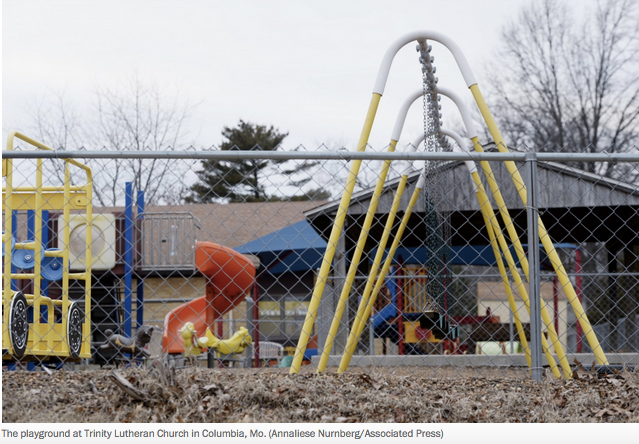The question, then, is whether the court has signaled that a wide variety of public funding programs, including school vouchers, are constitutionally required to include religious institutions. Its broad language condemning the withholding of generally available funds to church organs such as Trinity Lutheran suggests a wide new legal avenue has opened for religious groups to demand a share of taxpayer money.
In fact, the court sent no such clear signal. Though the justices have ruled that, in this case, public money must flow directly to a church, the threat to the separation of church and state will remain relatively contained so long as the justices live up to some limits embedded in their reasoning.
Noting a past decision in which the court dealt more skeptically with claims from the religious side, Mr. Roberts explained that the court ruled differently when the case concerned the trickier issue of public money funding an “essentially religious endeavor,” such as training to join the Christian ministry. “Here, nothing of the sort can be said about a program to use recycled tires to resurface playgrounds,” the chief justice noted. Picking up on this line of thinking, Mr. Breyer wrote, “I find relevant, and would emphasize, the particular nature of the ‘public benefit’ here at issue,” stressing that he “would leave the application of the Free Exercise Clause to other kinds of public benefits for another day.”




